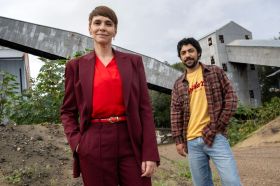Ever since the pandemic, calls have been growing louder for local content quotas on the Streaming and Video on Demand (SVOD) platforms that have transformed both our viewing habits and the local film and TV production industry.
In January 2023 Arts Minister Tony Burke said that legislation for local quotas on streaming platforms would be introduced into Parliament in the second half of that year, to begin no later than 1 July 2024.
As of today, that deadline has well and truly passed.
There is a growing sense of frustration among Australian screen producers, who see this uncertainty around regulation as contributing to what they perceive as ‘plummeting’ levels of local commissioning by the international streamers.
SPA CEO Matthew Deaner told ScreenHub:
‘We are naturally disappointed that the government missed the promised deadline of July 1st to implement a much anticipated and long-awaited framework to ensure popular streaming platforms invest in a guaranteed minimum of Australian screen stories.
‘Unfortunately, this delay is resulting in much anxiety and uncertainty for screen production businesses. Our members tell us that commissioning is largely on hold while we wait, and this is of much concern.’
In June, Screen Producers Australia (SPA) asked its membership to complete a survey investigating how local and global streamers are currently engaging with Australian producers.
A summary of these findings was shared with Parliamentarians as part of the Senate Standing Committee on Economics Inquiry discussing changes to Australia’s Location and Producer Offsets (which is another but connected issue).
The results were concerning, with international streamers revealed as the least engaged commissioners, with 38% and 36% of respondents naming the streamers as ‘Less’ or ‘Much Less’ engaged than they were in 2023. Local commissioner Stan remained the most engaged.
Read: Australian TV drama on the ropes, says QUT study
Producers quoted a range of negative impacts from the slowdown in commissioning, including the mental health of crew to the financing of projects. Some 54% stated the slowdown was impacting every stage of the production process, from initial meetings to development and into production.
While a slowdown in broader global investment is no doubt the top reason for declining commissioning, many in our industry see the drawn out wait for the Government regulation announcement as the true unsaid reason. One respondent stated it like this: ‘There is a wide gap between what the Networks SAY and what we KNOW is the reason’ behind declining commissioning.
Other responses included:
‘It’s obvious the SVODS are waiting as long as possible and doing as little as possible pending quotas.’
‘It is very hard to get them to engage in any projects at the moment – even when it is a returning
successful series.’
Deaner has said the data is ‘alarming’ and that ‘screen producers and the workforce they employ are only just hanging on’.
‘Australian audiences need some guarantee of access to Australian stories via online streaming services, just like they have for other services,’ said Deaner. ‘The screen industry has been extraordinarily patient throughout a lengthy consultation process. Still, we need the Albanese Government to deliver on this important cultural commitment with a robust framework that supports both the industry and audiences now and into the future.’
The sector is hoping for an announcement any day and there is some expectation that the legislation will be backdated to 1 July.
Local Content Quotas: some background
Broadcasting content quotas are a form of television industry regulation mandating the production of local, Australian and children’s content. They’ve been enforced, in various forms, on commercial television networks since the 1960s.
Although the arrival of international streaming platforms like Netflix, Disney+ and Amazon Prime have changed the mediascape in Australia, governments have not until now enforced content quotas on these platforms. For more on what the industry is hoping for – see this 2023 piece by Jane Mills, Our screen industry needs more than quota quickies.





